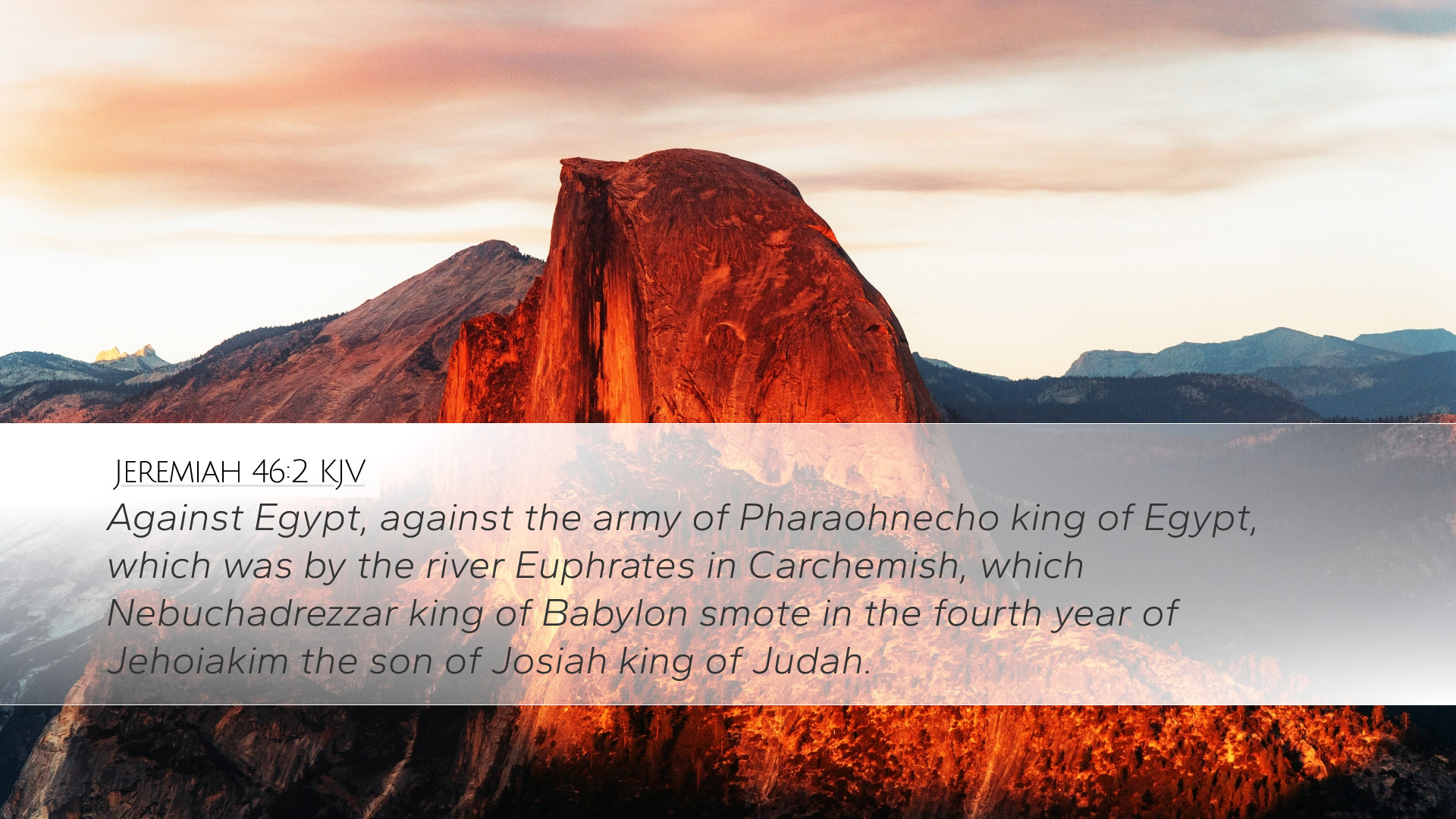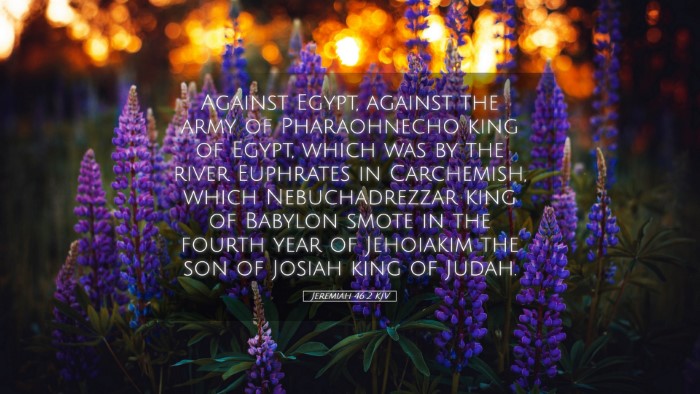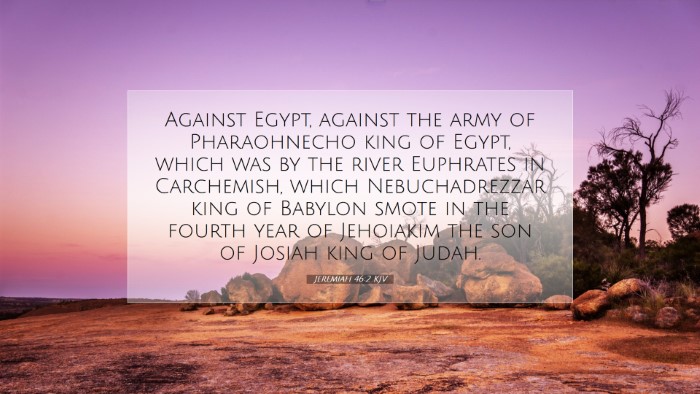Bible Commentary on Jeremiah 46:2
Jeremiah 46:2 states: "Against Egypt. Concerning the army of Pharaoh Necho king of Egypt, which was by the river Euphrates in Carchemish, which Nebuchadnezzar king of Babylon smote in the fourth year of Jehoiakim the son of Josiah king of Judah." This verse opens a significant prophecy concerning Egypt and its impending judgment, and it contextualizes the text within historical events that shaped the fate of nations in biblical times. The richness of this passage provides a deep reservoir of insight for scholars, pastors, and theologians.
Contextual Background
The prophecy in Jeremiah 46:2 is situated during a pivotal moment in ancient Near Eastern history. The reference to Pharaoh Necho and Nebuchadnezzar highlights the geopolitical shifts that transpired around the late 7th century BCE. Scholars like Matthew Henry emphasize that these events are not just mere history; they serve to illustrate God’s sovereignty over nations.
Historical Significance
The battle of Carchemish (circa 605 BCE) serves as a backdrop for understanding God’s message through Jeremiah. Albert Barnes notes that the defeat of Pharaoh Necho by Nebuchadnezzar is symbolic of God's judgment upon Egypt for its idolatry and oppression of the Israelites. Necho's involvement in the affairs of Judah by engaging in wars reveals the political entanglements that ultimately led to divine retribution.
Thematic Insights
-
Divine Sovereignty:
Jeremiah’s prophecy underscores God's authority over the kingdoms of the earth. As noted by Adam Clarke, these historical events are meant to remind the readers that God ordains the rise and fall of nations. The Egyptian army's defeat is not merely the result of military prowess but demonstrates God's will.
-
Judgment Against Idolatry:
The reference to Egypt is particularly poignant as it represents not only a political foe but a nation entrenched in idolatry. Matthew Henry elaborates that God’s judgment was directed against not just the Pharaoh but the idolatrous practices that permeated Egyptian society. This serves as a warning to all nations about the consequences of turning away from God.
-
Hope for the Faithful:
While judgment is pronounced, there is an implied message of hope for God’s people. The acknowledgement of God’s sovereign acts can serve as a comfort for believers, reinforcing the fact that they are under God’s protection amidst the chaos of worldly affairs.
Theological Reflections
The passage invites a deeper theological reflection on the nature of God’s judgment and mercy. Albert Barnes asserts that while God’s punitive actions may seem severe, they are a manifestation of His holiness and justice, driving home the point that evil cannot go unpunished. This reflects a broader biblical theme where divine judgment is intricately linked to redemption; God seeks to draw His people back to a right relationship with Him.
Application for Today
For contemporary readers, Jeremiah 46:2 challenges us to consider the implications of national identity and divine accountability. Matthew Henry suggests that just as Egypt faced consequences for its rebellion against God, modern nations must grapple with their own spiritual conditions. The church today must heed the calling to speak truth to power and uphold righteousness in the face of societal corruption.
Conclusion
In summary, Jeremiah 46:2 serves as a powerful reminder of God’s sovereignty, justice, and the historical realities that shaped the ancient world. The insights from esteemed commentaries by Matthew Henry, Albert Barnes, and Adam Clarke provide a robust framework for understanding this verse’s significance. As we reflect on this text, we are encouraged to trust in God’s ultimate authority, confront idolatry in all forms, and remain hopeful amid adversities knowing that God governs the affairs of nations.


